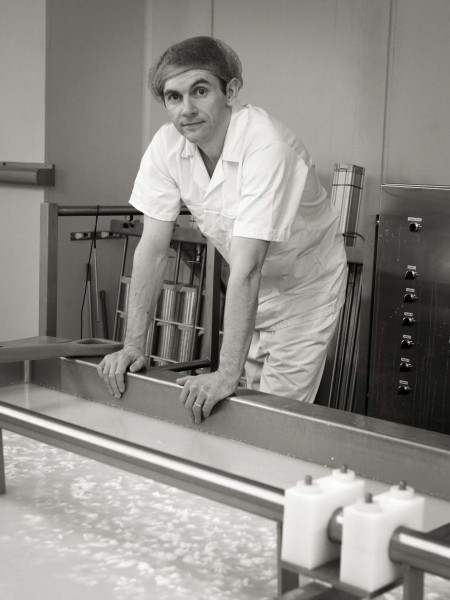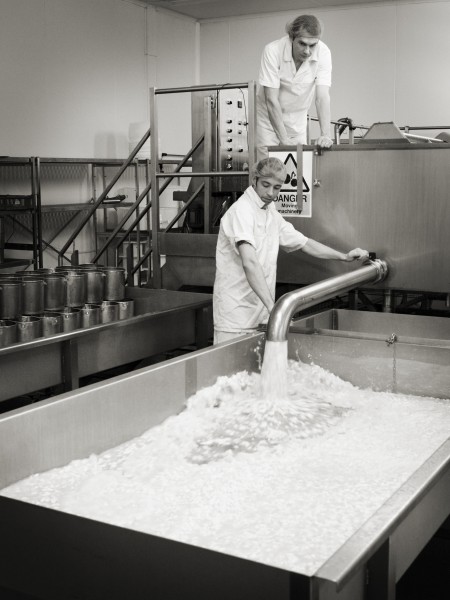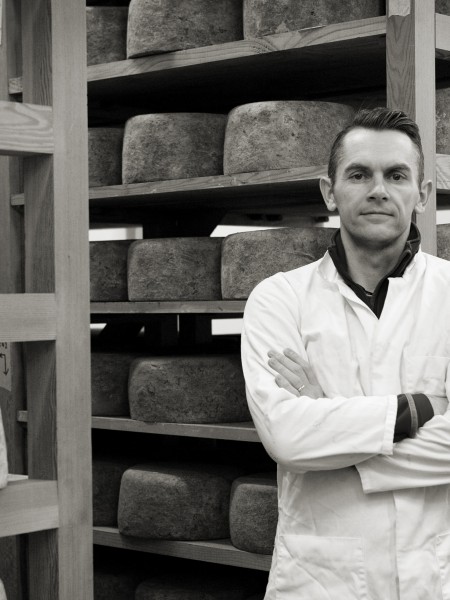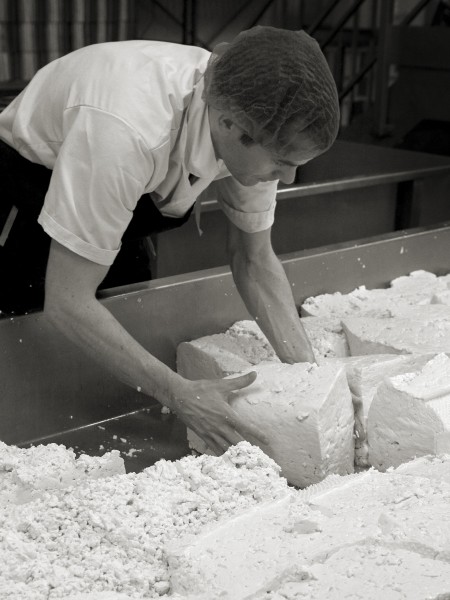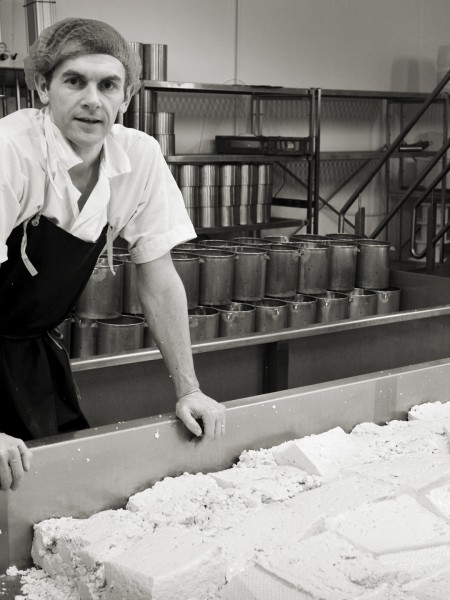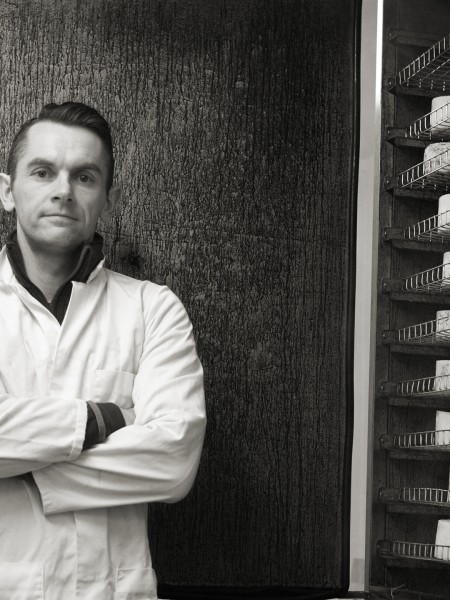Q. What is your principle professional skill?
A. Lead Cheesemaker
Q. Can you tell us a little about it?
A. We make hard pressed cheese with raw cow’s milk. The farmhouse recipes we use have been passed down through the generations of the Reid family. They have been kind enough to let me in on the recipes.
Q. How long have you been practicing your skill?
A. Five years.
Q. How did you learn your skill?
A. I was trained by John Knox, a consultant who has been making cheese and involved in traditional Scottish cheesemaking for over 40 years.
Q. How long did it take?
A. I’m still learning. Experience counts for a lot but with cheese you are always learning.
Q. Are there any other people in the region doing what you do?
A. There are other cheesemakers but they all do it differently. We use traditional methods and ingredients with minimal mechanisation.
Q. How important do you think your skill is for the region?
A. Pretty important. We’re keeping important traditional cheesemaking methods alive. You hear stories from local farms about the cheese they used to make in the region before it became so difficult to own your own cow and produce from its milk.
Q. How has your profession evolved over the last few decades?
A. Scottish cheesemaking was moved to more industrialized volumes post-war but this appears to be changing. More small producers are popping up and we pride ourselves in bringing back more traditional hands-on cheesemaking methods. Our methods can be hard work but the proof of their worth is in the quality of the cheese.
Q. What are the main differences between now and when you started?
A. We’ve moved into a new purpose built facility with new equipment. It’s also a great place for customers to visit, set in the beautiful Cairngorm National Park overlooking the Lochnagar mountain.
Q. How do you anticipate the future to be for your skill?
A. Good. We’re building a great reputation and the skills we use are important to continuing the high quality of our products.
Q. How important do you think it is to pass the skill on to the next generation?
A. Very important. Passing on our skills ensures that the legacy continues and that the quality of our products continues.
Q. How could that be achieved?
A. By training people .
Q. Would you be prepared to train someone?
A. Yes, I relish the chance to take on more staff and train them as cheesemakers.
Q. Does having a skill change the way you see the world?
A. Everything you do helps you see the world from different perspectives.
Q. What kind of rewards do you get from your skill, monetary and/or otherwise?
A. The final product. Positive feedback from customers. As a creative person there is a reward in doing something that inspires me.
Q. What impact has broadband and the internet had on your work?
A. Opportunities to see what other producers are doing and access to customers. Access to suppliers and information and research into products. Problem solving.
Q. What, if anything, could be done to help to preserve your skills and support your profession?
A. There is good support already in the Specialist Cheesemakers Association. The passing on of skills and the preservation of skills is important as well as being open about sharing skills with other producers. Pre-war Scotland was revered as one of the best cheesemaking nations in the world. We hope to play our part in returning to that!
